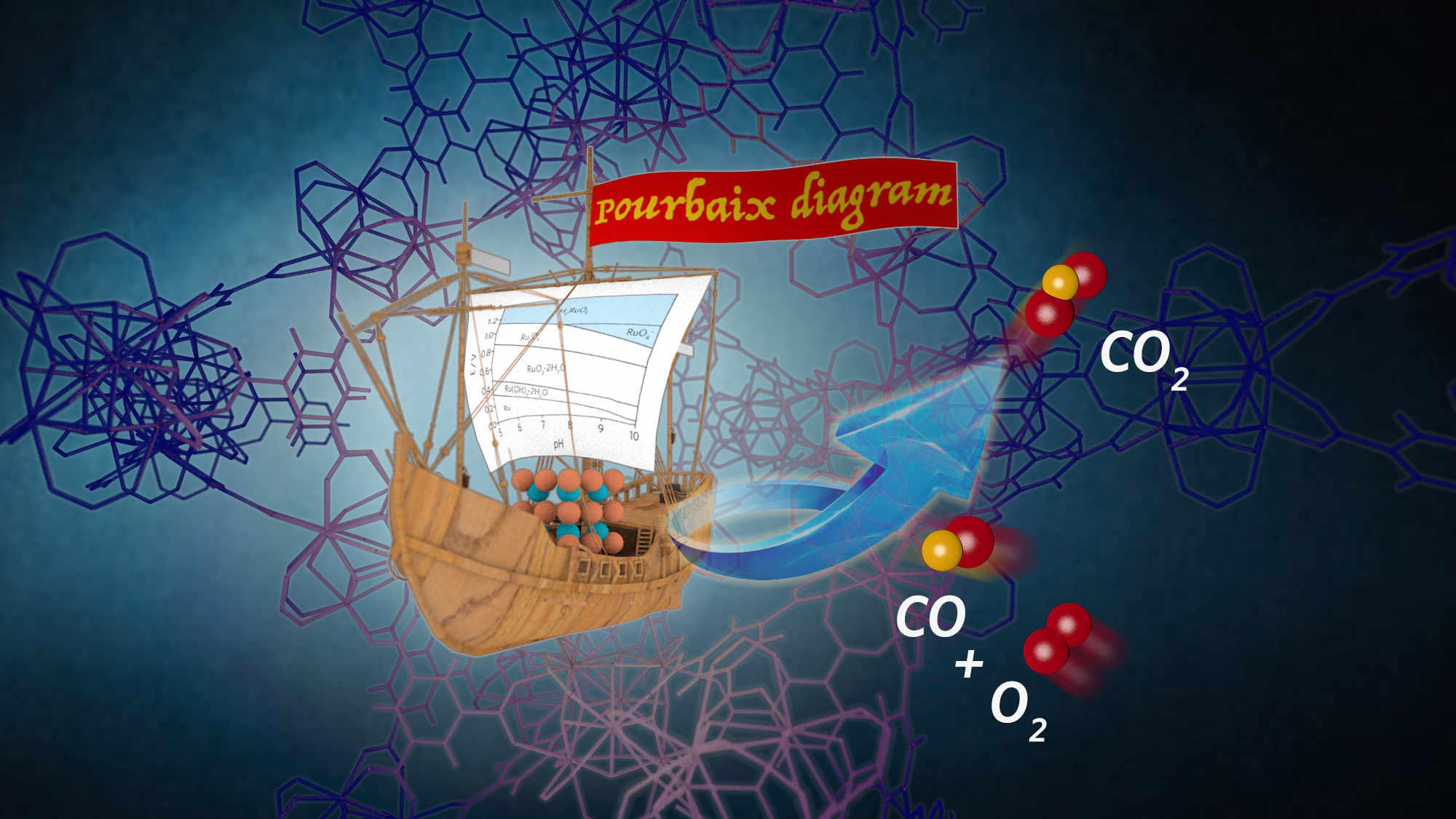When materials are confined inside the tiniest pores of different host materials, they behave differently from their bulk form, a change that scientists call the confinement effect. In the case of catalysts, confinement may lead to higher activity, keeps particles well separated, and protects their high reactive surface.
A research team from University of Cambridge, Dalian Institute of Chemical Physics, National University of Singapore, and University of New South Wales demonstrates a general concept called Pourbaix-Enabled Guest Synthesis (PEGS) for metal-compound guest synthesis by rationally selecting reaction agents and conditions. This strategy opens up the possibility of multifunctional materials in which either the guest and host do different things separately and the interactions between the host and guest may produce novel properties. As an example, a metal-organic framework (MOF) confined RuO2 catalyst (RuO2@MOF-808-P) with exceptionally high catalytic CO oxidation below 150 °C has been demonstrated. The enhanced low temperature catalysis has been attributed to confinement effect, i.e. weaker interactions between CO/O and the MOF-encapsulated RuO2.

Using thermodynamic Pourbaix diagrams, scientists can squeeze catalysts inside host materials like a ship into a bottle. (Image by HOU Jingwei)
From a practical perspective, the PEGS approach links the materials chemistry with the design of functional materials for applications such as heterogeneous catalysis. The confined oxide nanostructures obtained by the PEGS method in this work can present enhanced catalytic performance, which is of great significance for design of advanced oxide catalysts.
This work has been published in Nature Communications.
Funding for the research came from the National Natural Science Foundation of China (NSFC), the Ministry of Science and Technology of the People's Republic of China (MOST-PRC), the Chinese Academy of Sciences (CAS), and the China Scholarship Council (CSC).